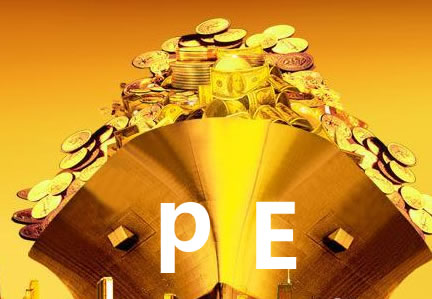財經商業
Private equity and the Arab spring
私募股權和阿拉伯之春
Tentative steps
投石問路
Investor interest in the Middle East and north Africa remains cautious
投資者對中東、北非的興趣依舊謹慎
THE hot money may rush in and out—Egypt’s Case 30 index has posted a 29.3% gain so far this year, for example, after shedding 49.3% in 2011. But a more meaningful gauge of investors’ perceptions of the Middle East and north Africa is the flow of longer-term money.
依埃及的情況,中東-北非可能有熱錢忽進忽出。例如,埃及目前公布的30項指標在2011年下跌49.3%,今年漲幅為29.3%。而投資者則根據長期資金的流動這一更有意義的指標來感知中東和北非。
The private-equity industry is still a long way off its pre-crisis peaks. The high point was 2007, with $4.1 billion of deals (these figures exclude Turkey, a hot destination which counts as European in the industry data, and Israel, an entrepreneurial ecosystem all of its own). Many of the regional funds that operated back then have closed, and only the most intrepid investors, most of them local, remain active. The average deal size has dropped from $172m in 2007 to $30m last year.
中東-北非的私募股權業若想重歸危機以前的峰值,仍有漫漫長路要走。2007年,私募股權業憑41億美元的交易攀至業界巔峰,土耳其和以色列則不在計算之列,前者雖為投資熱點,但業內數據將其視為為歐洲國家,后者則有自己獨特的企事業生態系統。彼時運轉的大多數區域基金,現今都已結束營業,唯有最具膽識的投資者活躍至今,其中多為本地人。平均交易規模已從2007年的1.72億美元,跌落至去年的3000萬美元。

If the glory days are very much in the past, the numbers suggest that investors are slowly regaining their appetite after the initial shock of the Arab spring. Deals worth $475m have been done so far this year, according to Dealogic. That already outstrips the 2011 tally of $237m.
如果說,輝煌榮耀已屬于昨天,那上圖的數據顯示,在經歷過阿拉伯之春帶來的最初的震撼后,投資者們已慢慢重拾對私募股權業的偏好。Dealogic的數據顯示,今年以來的交易總值已達4.75億美元,早已超過2011年2.37億美元的記錄。
Egypt, whose 85m-strong population helped make it the most popular destination for private-equity investments in the region between 2003 and 2008, has suffered from both the financial crisis and the revolution last year. But the prospect of lasting change in the aftermath of Egypt’s presidential election excites many. “Egypt is not very different from Turkey before Recep Tayyip Erdogan and Brazil before Lula da Silva,” says Ahmed Heikal, who heads Citadel Capital, a fund in Cairo. “If there is some stability, we will witness significant growth.”
在2003年至2008年期間,埃及依靠著自己8500萬的龐大人口,一度成為北非-中東一帶最熱門的私募股權投資地。但如今,卻深受金融危機和去年革命的雙重沖擊。然而,埃及總統大選的余波預示著持久的改變,如此前景讓許多人心潮澎湃。開羅基金公司Citadel Capital總裁Ahmed Heikal說,“現今的埃及,同雷杰普·塔伊普·埃爾多安執政前的土耳其,和盧拉·達·席爾瓦上臺前的巴西有很多相似處。如果埃及能穩定些,我們將見證埃及的強勁增長。”
Turbulence today also gives brave investors useful negotiating leverage. “We see Egypt as more favourable than before the revolution because the competition has backed off,” says Romen Mathieu of EuroMena II, a Beirut-based $100m fund that has just invested in a chain of eye clinics in Egypt. Mr Mathieu reckons that it is easier to win concessions about the level of control funds have over portfolio firms.
當下動蕩的市場也成為大膽的投資者手中有用的談判籌碼。EuroMena II是一家設在貝魯特的一億美元基金,該基金剛在埃及投資了多家眼科門診。EuroMena II的Romen Mathieu說,“革命將埃及的競爭一掃而光,所以革命后的埃及對我們更有利”。 Mathieu先生預計,基金在對投資組合公司的控制等級上將更容易贏得讓步。
Saudi Arabia is the only other country in the region with comparable heft to Egypt. Algeria has huge potential but the regulations change too often for it to appeal. Other countries are small or, like Syria, off-limits for obvious reasons. So funds often look for portfolio firms with regional potential. “The Arab world is only 350m people so we go for businesses that can capitalise on this by being regional or expect to expand regionally,” says Mustafa Abdel-Wadood of Abraaj Capital, a $7.5 billion emerging-markets firm based in Dubai. That requires expertise many funds lack. “Most funds realise they need operational managers who know how to grow a business in the region,” says one local analyst. “But they can be hard to find.”
沙特阿拉伯是中東-北非地區唯一與埃及實力相當的國家。阿爾及利亞雖潛力巨大,怎奈頻繁變動的監管機構令其吸引力大打折扣。其他國家或為小國,或如敘利亞,受限制原因顯而易見。于是,基金常常尋找具有區域潛能的投資組合公司。新興市場公司Abraaj Capital總資產75億美元,總部設在迪拜,公司的Mustafa Abdel-Wadood說,“阿拉伯世界僅有3.5億人口,所以我們投資的是能夠利用這一特點具備地域性,或有望在區域內擴張的企業。” 這所要求的專業知識也恰是大多數基金所缺少的。當地某分析師稱,“大多數基金意識到,他們需要熟知如何在這一地區發展生意的運營經理。但這樣的人才寥寥無幾。”
None of which makes an immediate uptick in Western funds’ activity seem likely. The potential for further political upheaval remains great, and there are many obstacles to private equity’s growth. Most businesses are family-owned and it can easily take a year to earn the trust needed to complete a deal, says Mr Mathieu. There are barriers to taking controlling stakes in portfolio companies, particularly in Saudi Arabia. Exit opportunities are not obvious. An investing revolution to follow the political one will take time.
要想憑借以上幾點立刻提高西方基金的活躍度的可能性不高。中東北非地區繼續發生政治動蕩的幾率巨大,私募股權的成長之途障礙重重。Mathieu先生說,阿拉伯世界絕大多數企業都為家族企業,如果交易需要,他們可以輕松用一年時間來贏得基金的信任。而若想在投資組合公司中獲得控股權,也要面臨層層阻礙,尤其是在沙特阿拉伯的公司。抽身機會并不明顯。如此看來,若想緊跟政治革命發動投資革命,還需要些時日。 翻譯:王葭葦












